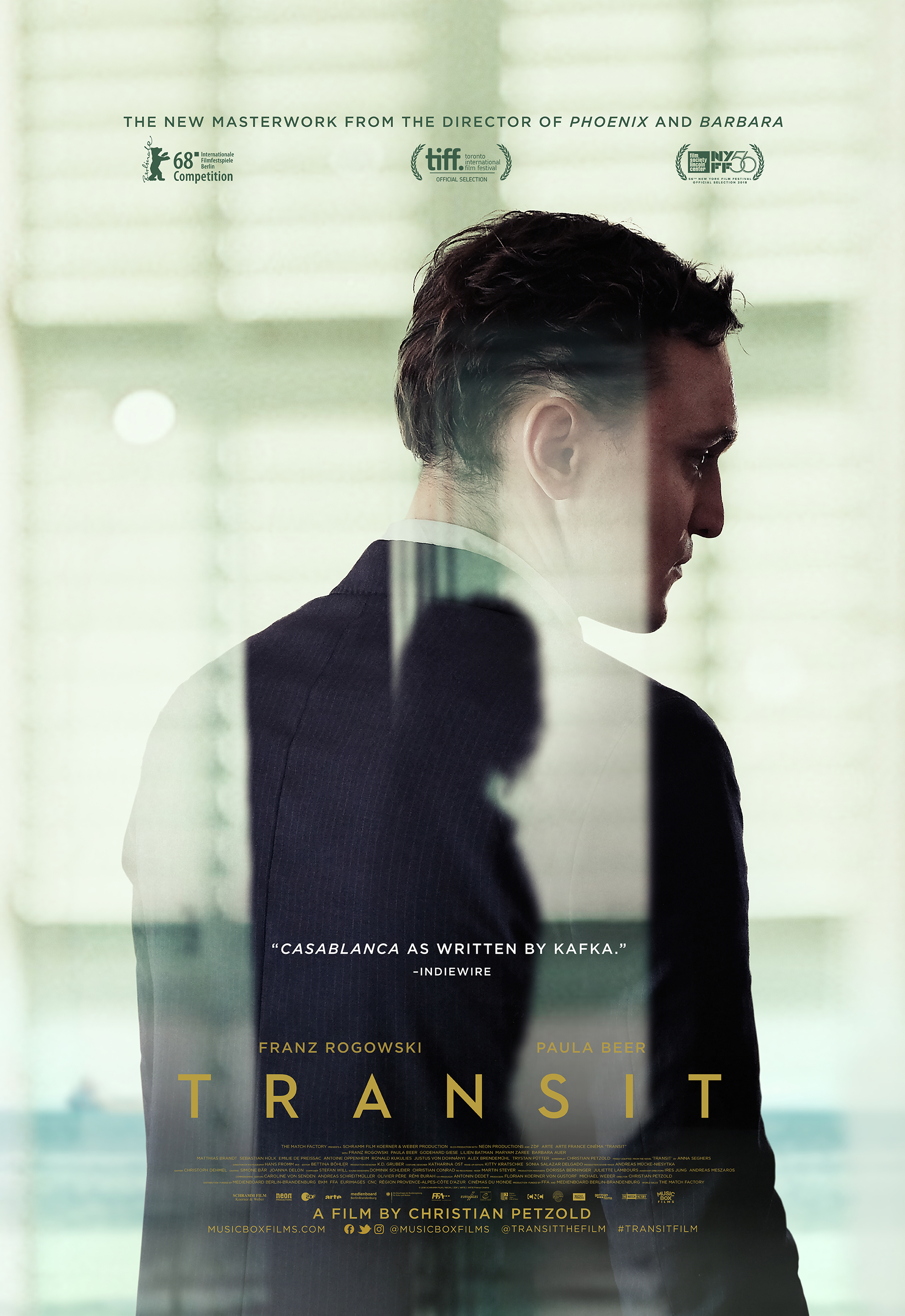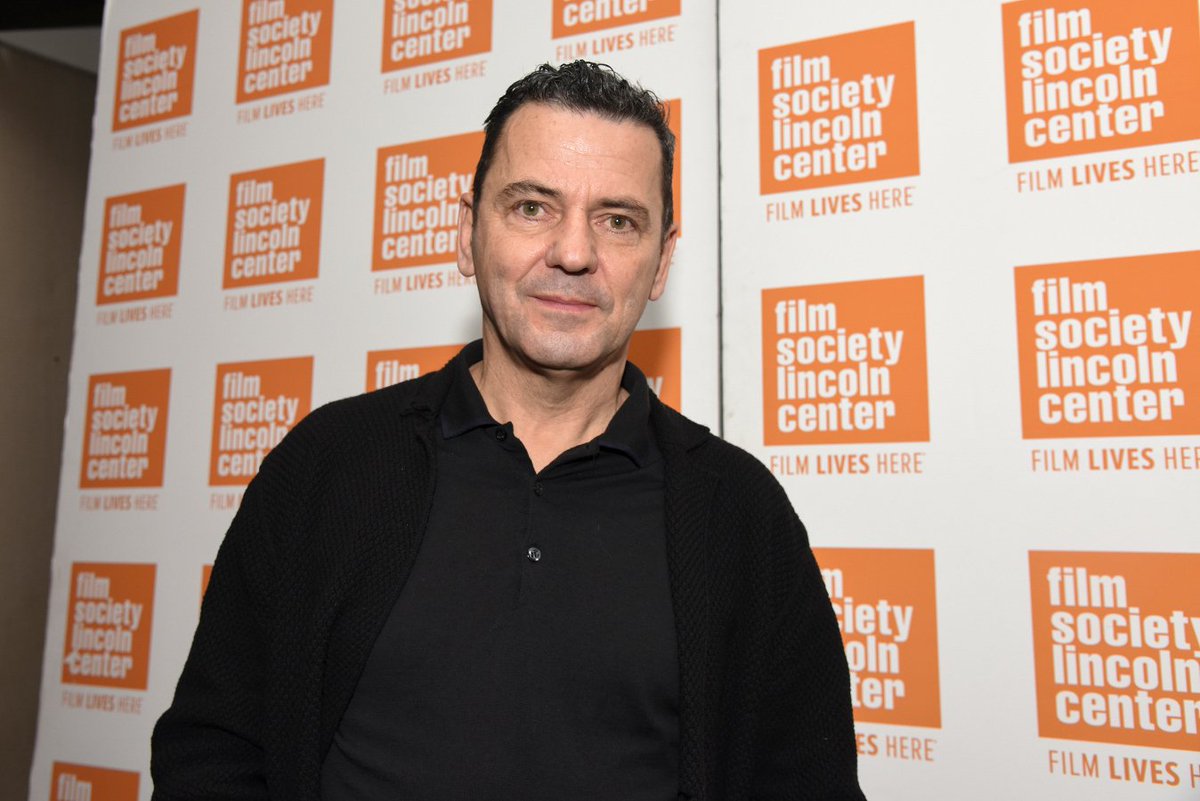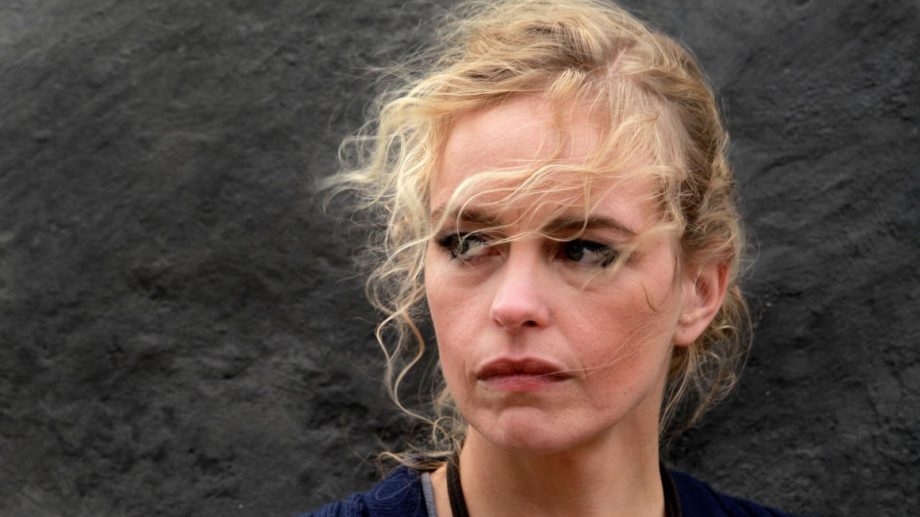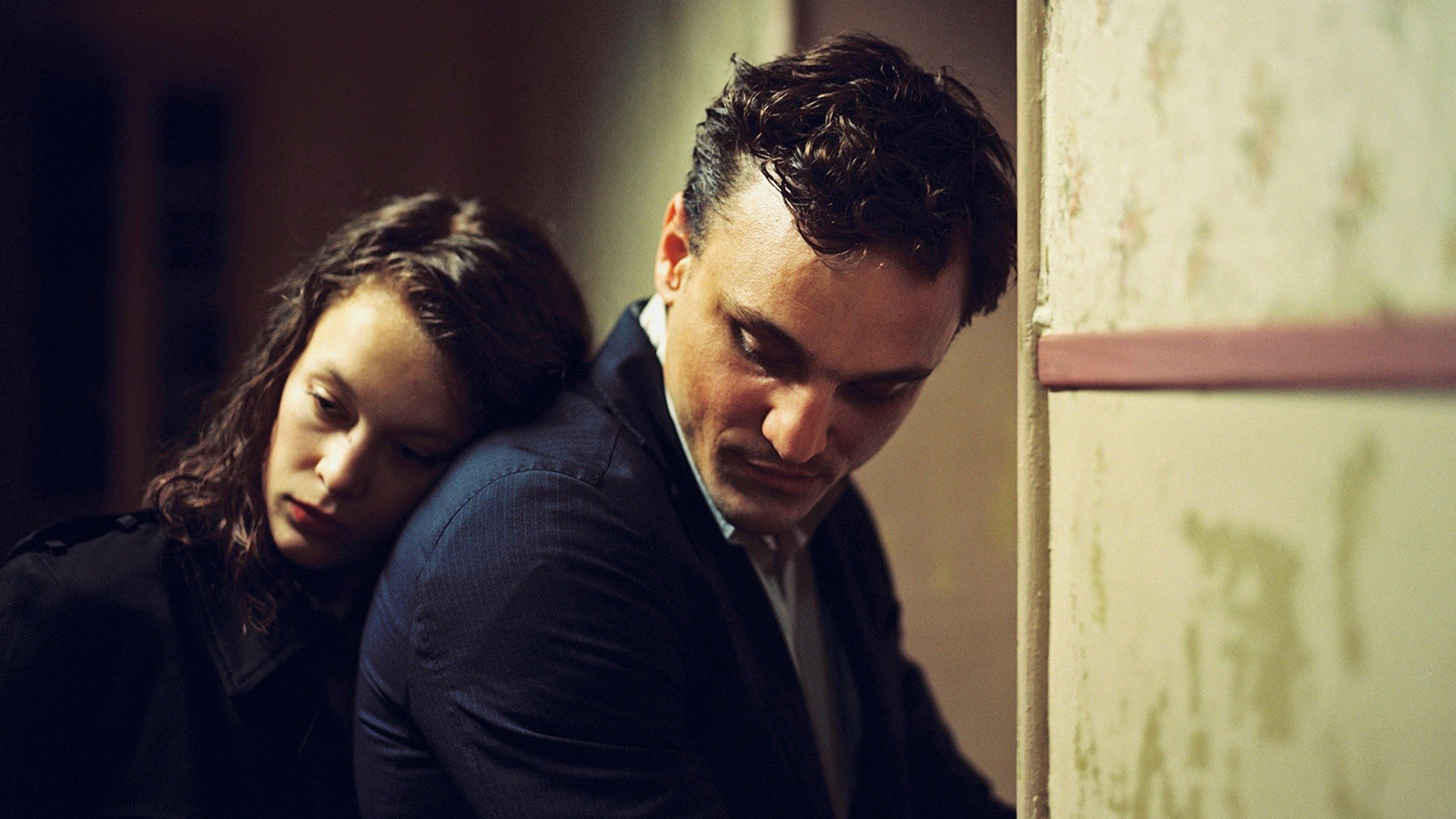Interview: Christian Petzold on 'Transit', melodramas and the influence of Fassbinder and Ackerman
 Thursday, February 28, 2019 at 6:00PM
Thursday, February 28, 2019 at 6:00PM 
Transit, opening this weekend in limited release, is the latest from the gifted German director Christian Petzold (Barbara, Phoenix). It is a haunting modern day adaptation of Anna Seghers 1942 novel "Transit Visa". The film stars Franz Rogowski (Happy End) and Paula Beer (Never Look Away, Frantz) as would-be lovers desperate to escape an occupied France. We got a chance to interview Petzold in January when he visited New York for a retrospective of his work by the Film Society of Lincoln Center. When we meet he informs us that he’s been up for more than 24 hours because of a flight delay, so he might struggle to find the words in English. But that's not what happens. There’s a translator but she only chimes in a couple of times in our half hour conversation. Perhaps delirious from no sleep, he’s in the mood to talk.
This interview has been edited and condensed for clarity...
Murtada Elfadl: How did you come to the decision to clash the contemporary setting with the period story. Can you talk about the choice for that dissonance?
CHRISTIAN PETZOLD: I started to write the script as a typical period picture, everything was set in 1942. I was with my son on a father / son journey through California and the writing was coming easy to me -- everything going well is not a good sign. My Mac notebook was destroyed by the sun when I left in the car. I didn't have any back ups. Actually I was relieved that everything was destroyed. Period pictures are mostly museum pictures as if you are going on a journey to old times, you get to see Sherlock Holmes or Keira Knightley in costume. I thought I’d have to cast Ben Kingsley in my movie...
Then I saw this Chantal Akerman movie Girl in Brussels. Set in 1967 with music, hedonism and sexuality. It’s about one day in this girl’s life, she buys a Rolling Stones record and fucks her boyfriend. Ackerman made this movie in 2005 yet the story is from 1967. I had no problem with it because there was a transit of ideas between '67 and nowadays. She was asking the questions about what is happening to hedonism, to revolutionary ideas, to black power to Angela Davis, to Che Guevara. Everything is becoming commercial. So it was not a joke to set in the present. That’s how I got the idea to make this story from Marseilles in 1942 set in the present day. It's not a museum piece but rather looks back right at us.

It gives the movie immediacy and relevance. Was that something you were thinking about?
Yes. In 1942 in Marseilles there's the whole intelligence of Europe. Jewish, Communist, Homesexual. They are all there as refugees waiting for the ship. The survivors were able to come back to Germany after 1946 and build up the constitution of the modern West Germany. That experience of being a refugee, waiting in a port for a ship shaped them, so they wanted to make sure it would never happen again. Now in Germany the conservatives are getting more powerful, they want to destroy this constitution. There is a paragraph in the constitution that says all people who are refugees because of their religion, politics or sexuality can find asylum in Germany. They want to change that.
It’s happening here, too.
Yes it’s happening with Trump and the Republicans. So I’m making a movie about the circumstances I’m living in. But everybody can relate to it in other countries. This relationship between 1942’s Marseilles and Germany nowadays. What is happening to the ideas.
Critics talk about Transit, Phoenix and Barbara as a trilogy? Do you think of them like that and do you see the interlocking themes? The protagonists are refugees, survivors, banished trying to survive autocratic fascist regimes?
Yes it was a planned. When you think of the work as a trilogy, they might look or feel the same but they are different. This is what I like in trilogies. Like when John Ford makes westerns they are the same but different. So you have the same themes but also something has changed. It is not the same in Phoenix, Barbara and Transit.
The next trilogy is about German myths. We start shooting the first one in six months. It’s about Undine, a woman who comes in from the water, living in Berlin wanting to kill all the men.
Will it be modern too?
Yes very modern.
This film could be thought of as a melodrama. Do you like melodramas and what are some that you liked or have inspired you?
Yes I like melodramas. They were re-invented in German cinema through queer artists like Fassbinder in 1970s. But they were not looked at favorably.We don't like disco because it’s queer and black, we don’t like melodrama because it’s queer. We want contemplative white man with problem movies (laughs). I saw my first Fassbinder movie when I was 20 - The Merchant of Four Seasons - total masterpiece. There was tenderness, brutality, dancing, music. It was so interesting but I was irritated because I liked movies like Taxi Driver at that time. Then I read that he found his way through watching the movies of Douglas Sirk. So I started watching all the Sirk movies. I fell in love with melodramas. I love the choreography of the scenes, the music. I cried at Imitation of Life, one of my most favorite movies. There’s a scene where the black mother can’t go into the club to see her white daughter singing. She is told she can go by the side door. The whole movie is shot from the side to emphasize that. Lana Turner is a star but Sirk shoots her from the side because the main story is the black mother/daughter drama. This is emotionally intelligent. Cineastic. That’s why I love melodrama.
Do you see a link between those movies and yours?
Yes there’s inspiration from those movies in this one and the two I made with Nina Hoss.
She’s so amazing.
We watched Written on the Wind. We are both Fassbinder and Sirk fans. I always thought of Transit as a Douglas Sirk film made by Fritz Lang. But it was my idea. I’m not Sirk, I’m not Fassbinder. I love melodramas but I have to go in another way.
 Hoss in Barbara
Hoss in Barbara
Which way?
For example the voiceover. It’s the bar keeper rather than a character in the story. I’m not a refugee, but I’m on the other side of the counter. I see everything but I’m not a part of it. That’s my position and that’s how I shot the movie.
Your collaboration with Nina Hoss is something that your audiences love but she's not in Transit.
When we arrived in Marseilles the press there asked me if Paula Beer was the new Nina in my movies. I was mad about the question. They thought I needed a new muse because she’s younger. So I said no Franz Rogowski is the new Nina Hoss. Nina and I needed a break, we made 6 movies together. You don’t want to be an institution. She’s working in the theater, she’s writing scripts. We’ll work together again.

Franz Rogowski is fantastic in the lead role. To be able to play this hollow shell of a man yet make him throughly captivating. Can you talk about your collaboration with him?
I only saw him in one movie before I cast him. I also saw him as a dancer in a dance company. I loved that he can work with his body. So many German actors don’t use their bodies. You know Franz is deaf in one ear but he can read lips. So he’s very interested in people’s faces. The way he looks at you when you are speaking is very intense.
Yeah he has one of the great cinema faces. You’re one of a few German directors whose films travel worldwide and almost always get U.S. distribution. How do you explain that?
I don’t know but I’m very proud about that. I feel at home here. Same feeling I had when Nina and I went to Toronto with Phoenix. In Germany they hate that movie. Anything that has to do with fascism or Nazis must teach a lesson or it’s not good. So Nina and I were so confused about the love we saw from the audience in Toronto. That film was hard work for both of us. It could’ve veered into ridiculous at any moment because of the story. To answer your question maybe it has something to do with me learning from American movies. Americans need cinema like the Greeks needed theater. It’s where you learn about community and society. In Germany cinema had to be re-invented because Nazis infected it. So I learned from American cinema.
Transit opens this weekend in New York at the Film Society of Lincoln Center and the IFC Center followed by a national roll out.



Reader Comments (5)
Thank you for this wonderful interview. This movie is devastating. I love the fable about the guy between purgatory and hell, but I won't spoil it here. I love the way he describes his inspiration as Sirk meets Lang. His movies are masterful melodramas, but unbeliavably cold and distant, and that's what makes them so haunting.
Thank you!
Thank you very much for this great interview.
Agreed Murtada. Big fan of both Phoenix and Barbara. Now looking forward to transit.
Nice interview. I am even more pumped than i was before to see this movie. and i see that both BARBARA and PHOENIX are newly on MUBI. will make for a great triple feature!
Excellent interview.
Go-see-this-masterpiece!!
Here's my take: https://letterboxd.com/moviegoergeek/film/transit-2018/1/